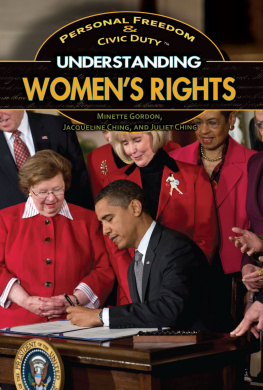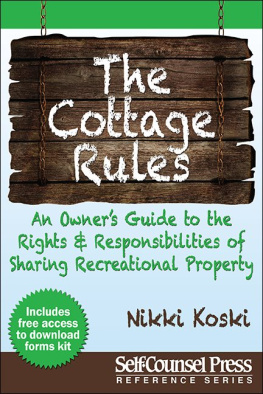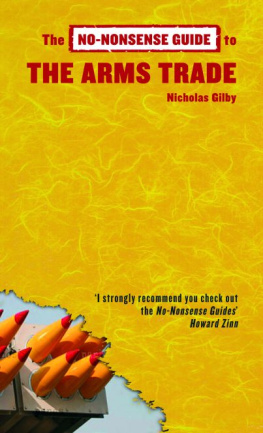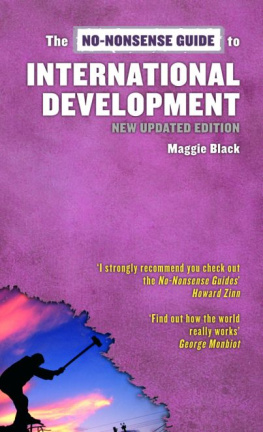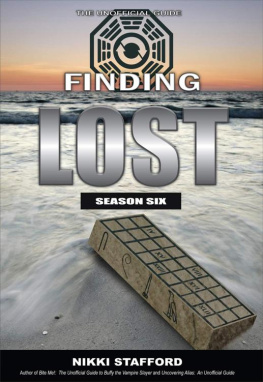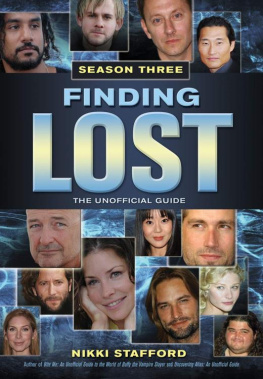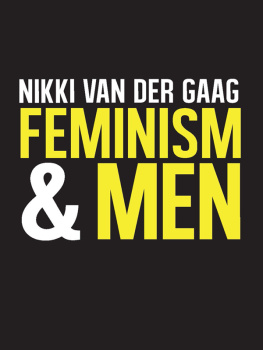The NO-NONSENSE GUIDE to
WOMENS
RIGHTS
Publishers have created lists of short books that discuss the questions that your average [electoral] candidate will only ever touch if armed with a slogan and a soundbite. Together [such books] hint at a resurgence of the grand educational tradition Closest to the hot headline issues are The No-Nonsense Guides. These target those topics that a large army of voters care about, but that politicos evade. Arguments, figures and documents combine to prove that good journalism is far too important to be left to (most) journalists.
Boyd Tonkin,
The Independent,
London
About the author
Nikki van der Gaag is a freelance writer, editor and evaluator on development issues. Prior to this she was editorial director at the Panos Institute and co-editor with the New Internationalist. She specializes in gender, poverty, human rights and refugees.
Other titles in the series
The No-Nonsense Guide to Animal Rights
The No-Nonsense Guide to Climate Change
The No-Nonsense Guide to Conflict and Peace
The No-Nonsense Guide to Fair Trade
The No-Nonsense Guide to Globalization
The No-Nonsense Guide to Global Terrorism
The No-Nonsense Guide to Human Rights
The No-Nonsense Guide to International Development
The No-Nonsense Guide to International Migration
The No-Nonsense Guide to Islam
The No-Nonsense Guide to Science
The No-Nonsense Guide to Sexual Diversity
The No-Nonsense Guide to Tourism
The No-Nonsense Guide to the United Nations
The No-Nonsense Guide to World Health
The No-Nonsense Guide to World History
The No-Nonsense Guide to World Poverty
The NO-NONSENSE GUIDE to
WOMENS
RIGHTS
Nikki van der Gaag
The No-Nonsense Guide to Womens Rights
Published in Canada by
New Internationalist Publications Ltd
2446 Bank Street, Suite 653
Ottawa, Ontario
K1V 1A8
www.newint.org
and
Between the Lines
401 Richmond Street West, Studio 277
Toronto, ON
M5V 3A8
www.btlbooks.com
First published in the UK by
New Internationalist Publications Ltd
55 Rectory Road
Oxford OX4 lBW
New Internationalist is a registered trade mark.
Nikki van der Gaag/New Internationalist 2008
First printed 2004. New edition 2008.
This edition not to be sold outside Canada.
Cover image: Gabe Palmer/Corbis
All rights reserved. No part of this publication may be photocopied, reproduced, stored in a retrieval system, or transmitted in any form or by any means, electronic, mechanical, recording, or otherwise, without the written permission of Between the Lines, or (for photocopying in Canada only) Access Copyright, 1 Yonge Street, Suite 1900, Toronto, Ontario, M5E 1E5.
Series editor: Troth Wells
Design by New Internationalist Publications Ltd
Cataloguing data available from Library and Archives Canada.
ISBN 978-1-771130-68-4 (epub)
ISBN 978-1-771130-96-7 (PDF)
ISBN 978-1-897071-48-9 (print)
Between the Lines gratefully acknowledges assistance for its publishing activities from the Canada Council for the Arts, the Ontario Arts Council, the Government of Ontario through the Ontario Book Publishers Tax Credit program and through the Ontario Book Initiative, and the Government of Canada through the Canada Book Fund.
DURING THE LAST decades feminist movements in the West and the East, in the North and the South, have witnessed a serious backlash. This applies also to the feminist movement in the United States. Young girls and women under the influence of the educational system and media have abandoned the struggle which their mothers and grandmothers began in the defence of womens rights. Books have been written by American women who extol the virtues of motherhood and enjoin women to revert to the natural functions, namely rearing their children and caring for their husbands and family.
Some of these books have been translated into Arabic in recent years and have met with enthusiastic support from the authorities and from intellectuals, both men and women, who move in their circles. They have showered praise on these new American women writers who have returned to the family, to the movements of so-called womens liberation, which spread to many countries during the middle of the 20th century. Language is often used against women and the poor in every country, especially in our countries, the so-called Global South. Today the word liberation means military and economic occupation in Iraq and Afghanistan. The word peace means war, and terror includes the massacre of Palestinian women and children under Israeli occupation. Development means neo-colonialism, robbing peoples economic and intellectual riches in Africa, Asia and Latin America.
We need to unveil the words used by global and local governments, by their media and education. Women and the poor, in almost all countries, in the South and North but especially in the South are subjected to a capitalist masculine system based on power and double standards in all domains of life, economic, political, sexual, religious and psychological; at the global, national, family and personal level.
Poor women and children suffer most in this unjust world. They are the first to be dismissed from paid work in any economic crisis. They are the first to die of hunger or poverty. Of the two billion people suffering poverty, 70 per cent are women. Two-thirds of illiterate adults are women. The gender gap is increasing in all areas and theres a growing backlash against womens rights in the South and the North. Womens employment rates have been declining steadily in most countries. Women are obliged to be isolated or veiled for religious reasons or to expose their bodies for commercial profit. Womens make-up, earrings, high heels, submissive smiles are back. Feminine is good, feminism is evil.


